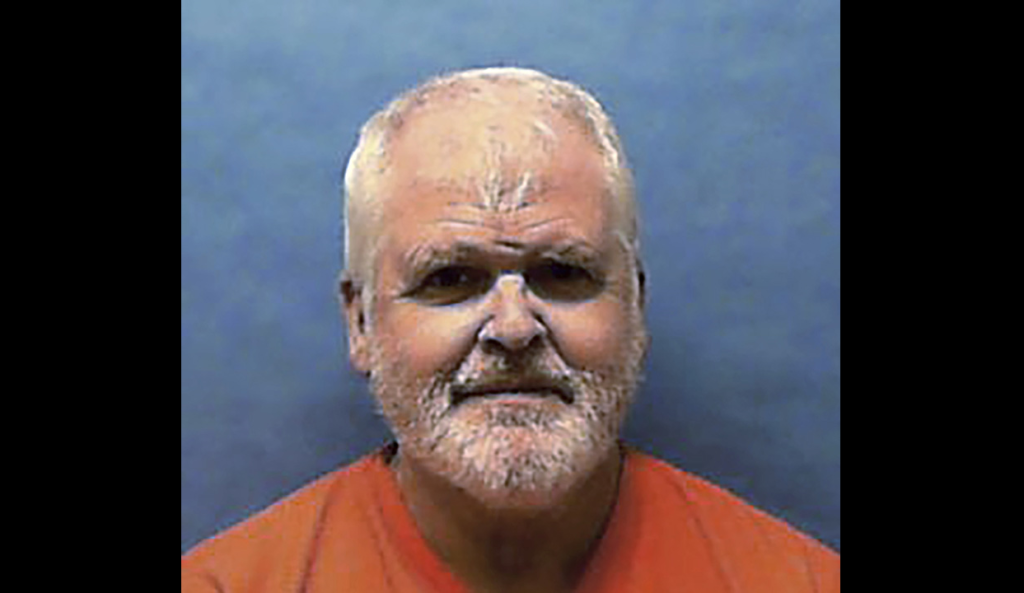In a significant legal proceeding, Florida is preparing for the execution of 62-year-old Jeffrey Hutchinson, an Army veteran convicted of four counts of murder, including the tragic shotgun killings of his girlfriend and three young children in 1998. The execution, scheduled for May 1 at 6 p.m., marks the fourth execution in Florida this year. Hutchinson has consistently claimed his innocence, attributing the murders to a conspiracy involving government surveillance due to his activism related to Gulf War illnesses. His lawyers argue that he suffers from severe mental health issues, but a recent ruling deemed him mentally competent to face execution.
| Article Subheadings |
|---|
| 1) Background on Jeffrey Hutchinson |
| 2) Details of the Crime |
| 3) Defense Claims and Legal Challenges |
| 4) Mental Health Considerations |
| 5) Implications of the Execution |
Background on Jeffrey Hutchinson
Born in 1961, Jeffrey Hutchinson served in the U.S. Army, including a tenure as an elite Ranger, before being embroiled in a heinous crime that would lead him to death row. After serving eight years, he returned to civilian life, where his struggles with mental health began to surface. In particular, Hutchinson became vocal about issues facing veterans like himself, including health complications related to Gulf War service. This activism, according to his claims, has led him to believe he was targeted by assassins—a narrative he has maintained throughout various legal proceedings.
Details of the Crime
On a tragic night in Crestview, Florida, Hutchinson reportedly had an argument with his girlfriend, Renee Flaherty, resulting in a chaotic series of events that culminated in the brutal slaying of Flaherty and her three children: 9-year-old Geoffrey, 7-year-old Amanda, and 4-year-old Logan. Following the altercation, Hutchinson left their shared home, only to call 911 stating, “I just shot my family.” When police arrived, they found the children and their mother shot dead in their home. A 12-gauge shotgun was recovered at the scene, and evidence, including gunshot residue on Hutchinson‘s hands, placed him at the center of this tragic event.
Defense Claims and Legal Challenges
During the 2001 trial, Hutchinson‘s defense team claimed that two unidentified men had entered the residence and committed the murders. This assertion, however, failed to convince the jury, leading to a conviction on all counts. Hutchinson received a life sentence for the killing of Flaherty and received three death sentences for the children. Following the trial, various appeals have been lodged; however, they have been consistently rejected. Recently, his legal team sought to delay his execution, arguing that he has become insane and is thus ineligible for the death penalty. The court found otherwise, ruling that Hutchinson does not currently exhibit signs of mental illness.
Mental Health Considerations
At the core of Hutchinson‘s defense is his diagnosis of Gulf War Illness (GWI), along with post-traumatic stress disorder (PTSD). The Department of Veterans Affairs reports that GWI significantly affects veterans who served between 1990 and 1991, causing chronic symptoms that may include fatigue, headaches, joint pain, and memory impairment. While his defense relied heavily on these factors, the courts have ruled that Hutchinson‘s mental state does not prevent his execution, suggesting that his claims of being targeted by governmental forces are unfounded. This dismissal raised ethical questions regarding the death penalty as it pertains to individuals with documented mental health issues.
Implications of the Execution
The impending execution of Hutchinson not only reflects on the continuing application of the death penalty in Florida but also the broader societal conversations about justice, mental health, and the treatment of veterans. With this case, the state aims to proceed with its legal mandate while grappling with the moral and ethical implications of capital punishment. Hutchinson’s execution will mark the fourth in Florida this year and could set a precedent for future cases involving individuals claiming mental health impairments. Moreover, there is a scheduled execution on May 15 for another convicted murderer, indicating that Florida’s application of the death penalty remains robust despite criticism from human rights advocates.
| No. | Key Points |
|---|---|
| 1 | Jeffrey Hutchinson is set to be executed for the 1998 murders of his girlfriend and three children. |
| 2 | He claims innocence, attributing the crime to a conspiracy against him. |
| 3 | Hutchinson’s defense argues mental health issues stemming from Gulf War service. |
| 4 | He has been denied appeals based on claims of insanity. |
| 5 | His execution reflects ongoing debates about capital punishment and mental health. |
Summary
The scheduled execution of Jeffrey Hutchinson serves as a stark reminder of the complexities surrounding capital punishment, particularly concerning mental health. As Florida moves forward with his execution, discussions regarding the ethical implications and the handling of veterans in the criminal justice system are expected to intensify. This case raises essential questions about the competencies and rights of individuals sentenced to death, especially amidst claims of mental illness and wrongful accusations.
Frequently Asked Questions
Question: What were the circumstances of the crime committed by Jeffrey Hutchinson?
Jeffrey Hutchinson was convicted of murdering his girlfriend and three children in a violent incident in Crestview, Florida, in 1998. Following an argument with his girlfriend, he allegedly shot them all with a shotgun before calling 911.
Question: How has Hutchinson defended himself throughout the legal process?
Hutchinson has consistently claimed his innocence, asserting that unseen assailants were responsible for the murders. He also argues that his claims of government conspiracy stem from mental health issues related to his service in the Gulf War.
Question: What is Gulf War Illness (GWI)?
Gulf War Illness is a term used to describe a variety of chronic health symptoms reported by veterans who served during the Gulf War. Symptoms can include fatigue, headaches, and joint pain, and it is deemed a concern by the Department of Veterans Affairs.


